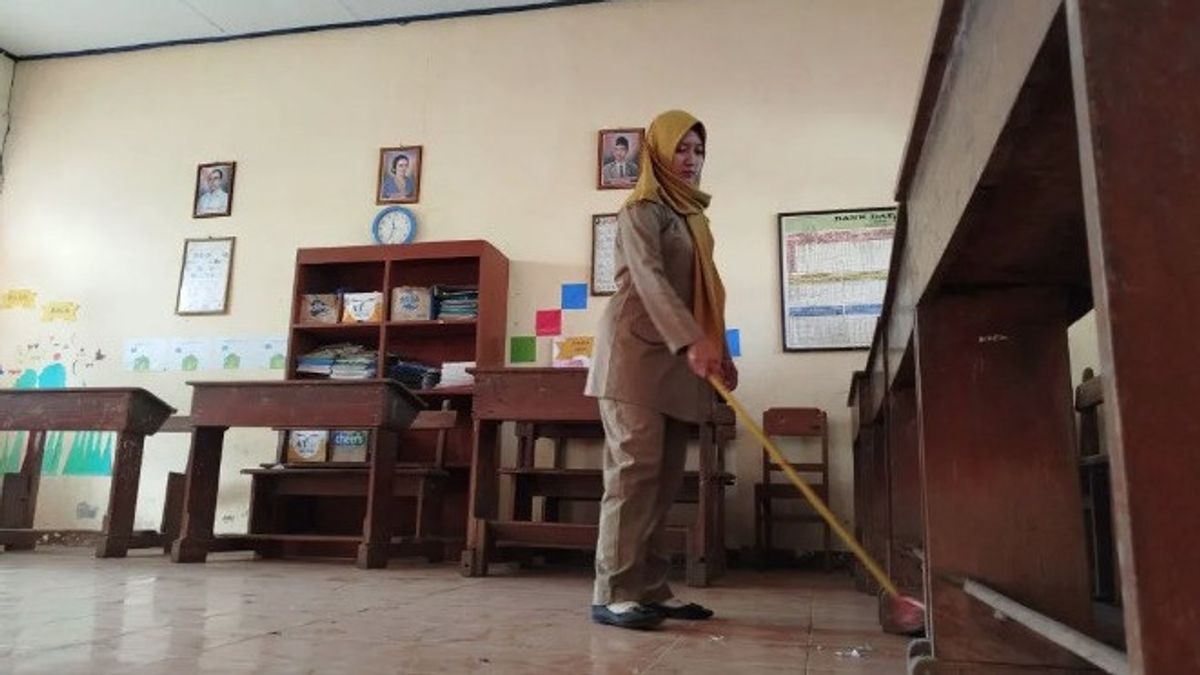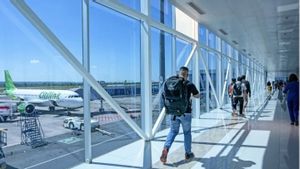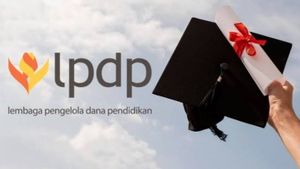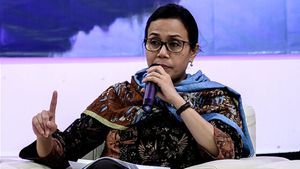JAKARTA Teachers at Mulyasari State Elementary School, Cirebon, West Java, were forced to do blusukan to look for parents who wanted to send their children to their place of teaching. Meanwhile, in Tasikmalaya, a number of State Junior High Schools also lacked students who had an impact on the number of empty classrooms.
The number of students received at the 2024 New Student Admissions (PPDB) at SMPN 18 Tasikmalaya decreased. Of the eight classes prepared, only four were filled with 28 students per class. This situation resulted in many empty classes remaining.
The phenomenon of public schools lacking students also occurred in other areas. A total of five SDN in Ponorogo, East Java, did not get students at all in the 2024/2025 school year.
One of them is SDN Bajang, which for the second time did not get students after it occurred in 2020. Acting Head of SDN 1 Bajang, Asrofi, confirmed that the school he leads does not have any new students at all.
"Yes, just competition, our school position is indeed surrounded by many private schools," said Asrofi.
What Asrofi said could indeed be one of the causes of public schools that lack students. In today's era, it is undeniable that parents, especially the millennial generation, prefer to send their children to private schools. Religiously-based private schools and international curricula are often an option.
There are a number of considerations that make parents choose private schools over the country, although they used to receive more education in public schools.
The first reason is because the quality of education in the private sector is considered better than public schools. In addition, differences in the quality of human resources (HR) and environmental conditions in schools are also taken into consideration. Under the pretext of doing the best for the sake of children's education, public schools are often no longer the choice of parents.
Education observer Ubaid Matraji said that public schools did not get new participants had actually occurred since the last few years. According to Ubaid, this shows that there has been a systemic failure regarding equitable distribution of school quality by the government.
It should be the government's job to make school quality even, so that there will be no more favorite school status. PPDB with several systems, such as zoning, achievement, and affirmation is considered to have failed to achieve its goals.
"The Education Office does not take care of this, it is never serious. With any system, if there is no equity, then favorite schools will still be easy targets for parents. This triggers fraud because people are targeting favorite schools," said Ubaid when contacted by VOI.
Ubaid added that the zoning system that was being heralded was aimed at leveling the quality of schools, which did not happen. He said the zoning system until now was only to equalize access and that was also problematic because in terms of the availability of the number of registrants and the number of benches were not comparable.
"The zoning system that is hailed to equalize quality and access does not occur, only jargon. This system is good if the quality is evenly distributed," said the National Coordinator of the Indonesian Education Monitoring Network (JPPI).
"People will be happy to go to school next to their house, there is no need to cheat, maladministration, because the government has guaranteed school uniforms," Ubaid added.
He regretted that the chaotic PPDB had been going on for quite a long time and as if there was no improvement. In fact, education is the basic capital for creating quality resources, which in the end will contribute to advancing the nation.
With a large political will from related agencies, Ubaid believes that education problems in Indonesia can be resolved. One of them is the State Revenue and Expenditure Budget of 20 percent for education that is managed transparently, accountably, and there are no leaks everywhere.
So far, the education sector has not been placed as a priority, only a business, only a complement. Even though the development of human resources if not started from schools, the impact is everywhere," he explained.
"If the school is not handled properly, then later the graduates will not have integrity, and will have an impact on all sectors. For example, producing corrupt judges, rulers who are not trustworthy, this all started from the education sector that was not serious," said Ubaid again.
Meanwhile, education observer Senza Arsendy can understand some considerations parents send their children to private schools. According to Senza, this is because some parents still consider education as an 'investment'. In this case, parents hope that their children have better abilities if they are sent to private schools.
The more prosperous a family is, the greater the chance that children will get a better education. This can be proven from the willingness of parents to spend deeply in order to get the best school.
But because quality schools are still limited, according to Senza, it encourages parents to compete in order to invest in the right place.
"It's just probably one of the concerns is when many people, who have a bargaining position in our society that is quite high, run to private schools, then what are you going to do with public schools?" said Senza.
He explained that this problem should be handled by the government, because currently the average quality public school is far below expensive private schools, although there are still superior public schools whose quality is no less good.
Senza emphasized that anyone has the right to quality and easily accessible public schools, including the upper middle class group, because the community has paid taxes.
SEE ALSO:
When public schools are deemed to have shortcomings, according to Senza, the public can demand improvement.
"We have to view this education as a public item. When we don't get quality education, it's not only felt by the person, but also the whole community," said Senza.
The English, Chinese, Japanese, Arabic, and French versions are automatically generated by the AI. So there may still be inaccuracies in translating, please always see Indonesian as our main language. (system supported by DigitalSiber.id)


















